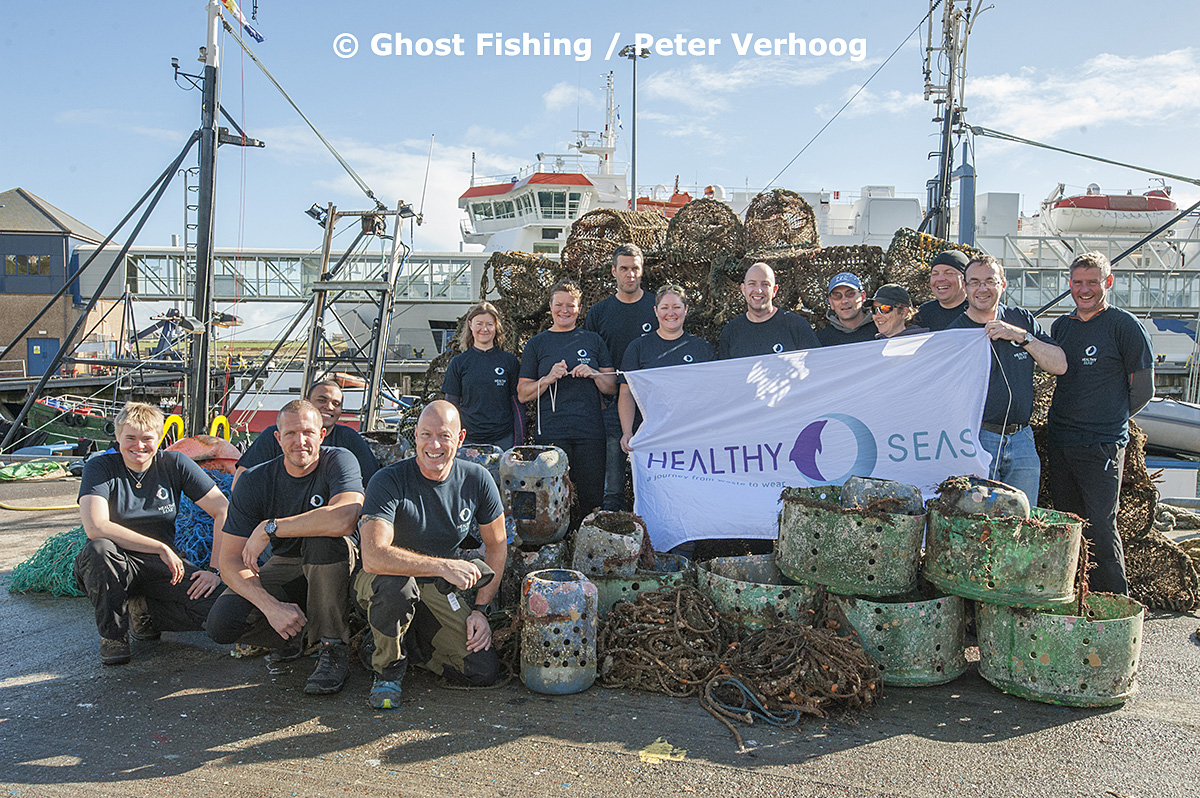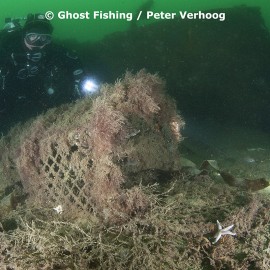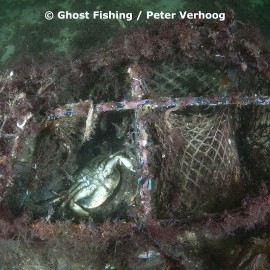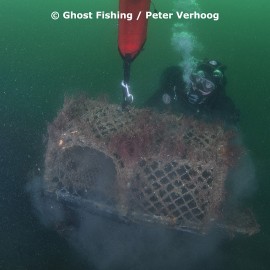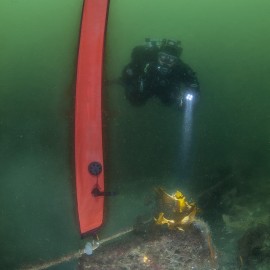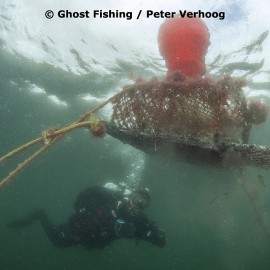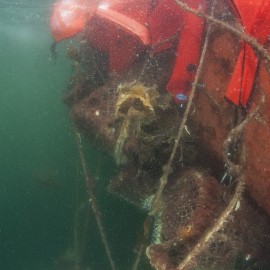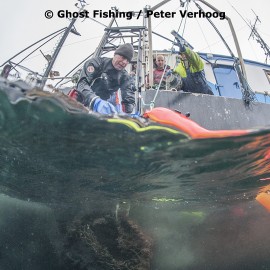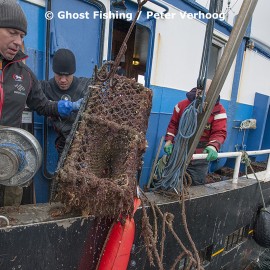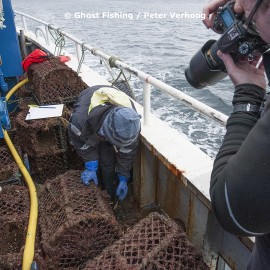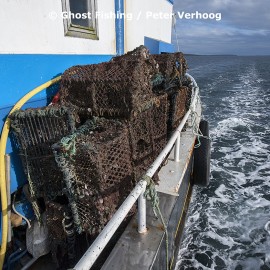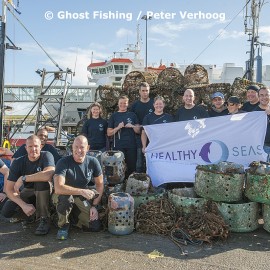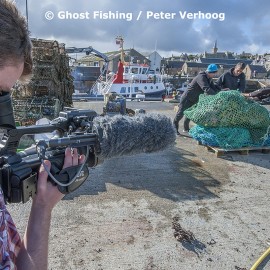Last week our Dutch diving team was in Orkney, Scotland to execute a 5-day lost fishing gear removal project in Scapa Flow. This unique project is a collaboration between World Animal Protection UK, Healthy Seas, local fishermen and diving team Ghost Fishing with 13 divers from England, Scotland and the Netherlands. Together we removed 60 creel pots, 25 buckie pots, 2 km ropes and shot lines, approximately 500 kg fishing nets and a lot of other debris from 7 shipwrecks and two reefs at Orkney shore. Healthy Seas will recycle the nets, the ropes will be used for the generation of door mats by a local Scottish retailer who uses traditional methods the make his products of old fishing rope.
It’s the first on the ground project to be delivered collaboratively by members of the Global Ghost Gear Initiative (GGGI), which was launched in London this month. World Animal Protection, Healthy Seas and Ghost Fishing formed a team of divers, marine researchers and campaigners who start to quantify the scale of the waste problem in the Scapa Flow and work to reduce it.
The term ‘ghost gear’ refers to any fishing equipment or fishing-related litter that has been abandoned, lost or otherwise discarded and continue to harm marine animals. There is a growing body of evidence to show that ghost fishing gear poses serious environmental, conservation, animal welfare, human health and economic costs that are of relevance to many stakeholders. It is a global problem that requires urgent action. An estimated 640,000 tonnes of fishing gear – around 10% of global marine litter – is added to our oceans annually worldwide.
At 120 square miles, Scapa Flow is one of the world’s largest natural harbours and the sea around Orkney has one of the largest concentrations of shipwrecks anywhere in the world. Over time rubbish has accumulated on and around the wrecks including lobster pots, crab creels, whelk pots, ropes and diver shot lines.
Sea Change campaigner, Christina Dixon, said: “The lost and abandoned fishing gear is a significant risk and environmental hazard. Discarded pots can cause the unnecessary suffering and death of many marine creatures as they continue to ‘ghost fish’ and places additional strain on fishing stocks. We are pleased to be on board the vessel to work alongside Ghost Fishing and Healthy Seas on this essential project.”
Diving coordinator Healthy Seas & Founder Ghost Fishing, Pascal van Erp, said: “I am very happy and proud that the network of Ghost Fishing divers has been able to bring together international divers for this project as part of our work with the Healthy Seas initiative. Healthy Seas aims to remove waste, in particular fishing nets, from the seas for the purpose of creating healthier seas and recycling marine litter into textile products. It’s an open initiative which welcomes new partners and creative ideas. We can learn a lot from each other during this trip.”
The specific objectives of this week’s mission were to:
- Assess the scale and effects of the problem by estimating how much ghost gear is snagged on wrecks or on the sea bed and locating items for removal;
- Perform clean-up dives to remove as much ghost gear from shipwrecks and reefs as possible;
- Identify sustainable and suitable ways to dispose of the removed materials;
- Map and photograph items that cannot be removed over the week and arrange future removal actions.
The information will form a report to enable replication through future solutions projects and will be shared with the alliance of government, industry, intergovernmental and non-governmental organisations that make up the Global Ghost Gear Initiative.



